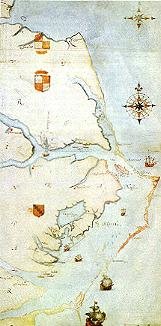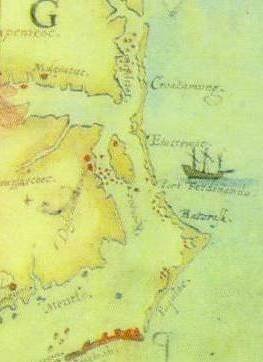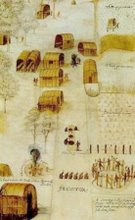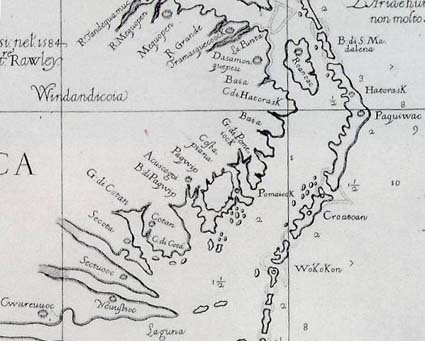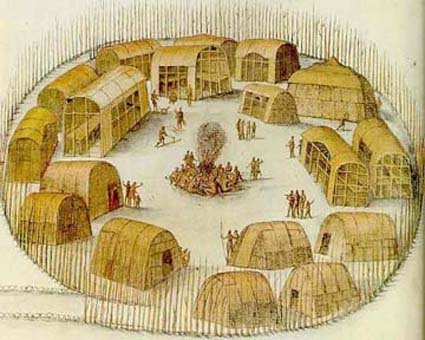Suppose Scots-Irish settlers in North Carolina in the early eighteenth century came upon a group of people who in some ways seemed to be indigenous, but spoke seventeenth century English and had English names. History or an episode of the Twilight Zone?
Indeed, this seems to be the history of the Lumbee Indians of North Carolina. But who are they really? Are they Indians? What is their origin?
A prominent theory is that the Lumbees are descendants of Native Americans and survivors of the Lost Colony of North Carolina.
In 1587, a group of colonists under Sir Walter Raleigh's charter landed in the Outer Banks of what is now North Carolina. This was the second or third group of colonists in the area. One group had returned to England with Sir Francis Drake. The latter group was headed by Governor John White. White returned to England to re-supply the colony; his voyage back to America was delayed by the complications of the English war with Spain and the winter weather. When White did return in 1590, the colonist were gone, but strange "clues" were found. The word "Croatan" was found carved in the wall of a structure that had been built by the colonists. The colonists were never found.
In the early 1700's, Scots-Irish settlers came upon English-speaking people in the interior of southeastern North Carolina. These people appeared to be of mixed race. It is said that in the early censuses, these people were enumerated as "mulattoes" or "free Negroes." The people themselves claimed to be Indians. They waged a legal and political struggle in t he nineteenth century for recognition as Indians.
http://geneablogie.blogspot.com/2007/10/can-dna-solve-lumbee-problem.html



